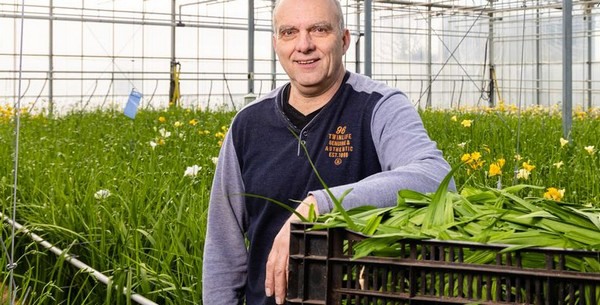In 2020, SIGN launched the Circular Horticulture 2020-2025 innovation program. This program stimulates circular entrepreneurship, the development of new chains, and the organization of experimental space and market. Of course, cultivation companies have a vital role to play. Why are they taking up the gauntlet? Marko Penning of Penning Freesia in Honselersdijk explains.

Why?
"At our company, we have year-round crop waste from the freesias and partly also from the breeding of amaryllis. More than two years ago, the idea arose that we should do something with it. You get quite a shock when you see the annual amount of green waste and the costs you pay for processing. Then the question arises: how can you put this to good use? I started to look into sustainability and came into contact with the people at VARTA. I also noticed the many initiatives and big potential both within and outside the horticultural sector. Our ambition is to reuse all our organic residual material. I think it's realistic to realize that in the next two to three years."
What?
"The advantage of the milling leaf is that we can deliver it as dry material for processing, and we deliver a constant quantity throughout the year. Among other things, it is processed in the paper, for which Moerman's lily stems are also used. That goes well, 20% plant fibers are added to 80% old paper. Economically, it also quickly becomes interesting. Processing is currently a cost item, so every saving is a profit. In addition, we now have our composting machine where the remaining residual material - including recyclable coffee cups - is processed into compost. We use that in the greenhouse ourselves. The result is that we have gone from four containers to the waste processor back to one."
What next?
"The next project is the application of milling blade in sheet material for interior construction. That will also include the residual stream of watercress and Christmas trees. The result can be admired at Floriade Expo in Almere later this year. I think the story of circularity is an important added value for our company. The nice thing is that you are constantly thinking about new possibilities. I regularly visit meetings to learn from other companies. And the fact that there is sufficient return on investment is certainly not unimportant."
source: Glastuinbouw Nederland
